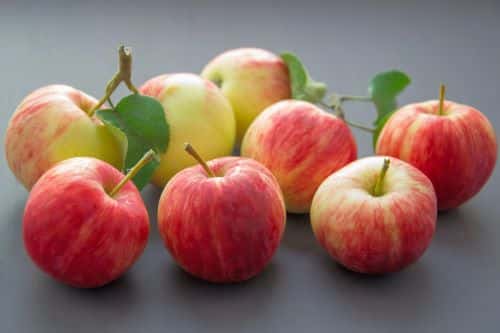The Ultimate Guide to Eating for Optimal Digestive Health: Healthy Foods to Help with Digestion
Eating a healthy diet is essential for optimal digestive health. The right foods can help your body to digest and process nutrients more efficiently while avoiding foods that can upset your stomach or cause bloating. Indigestion leads to vomiting, headache, breathing problem, chest pain, constipation, diarrhea, and sometimes more severe diseases such as heart attack.
So, Eating healthy is essential for your overall well-being, and it is especially important for maintaining a healthy digestive system.
In this article, we will discuss the top 5 healthy foods that can help with digestion and why they are beneficial for our digestive system. So if you’re ready to start eating for optimal digestive health, let’s get started!
How can Poor digestive health negatively impact one’s overall well-being?
Poor digestive health can have a significant impact on one’s overall well-being. Our digestive system plays a crucial role in breaking down food, absorbing nutrients, and eliminating waste from our bodies. When this system is not functioning properly, it can lead to a range of uncomfortable symptoms and long-term health issues.
Digestive problems such as indigestion, bloating, constipation, and diarrhea can cause physical discomfort and disrupt daily activities. These symptoms often result in decreased energy levels, reduced productivity, and an overall feeling of lethargy. Additionally, poor digestive health can also affect mental well-being by causing mood swings, irritability, and difficulty concentrating.
Furthermore, the gut is often referred to as our “second brain” due to its connection with the central nervous system. Research has shown that an imbalanced gut microbiome can contribute to mental health disorders such as anxiety and depression. This highlights the intricate relationship between our digestive health and our emotional well-being.
Moreover, poor digestion hampers nutrient absorption which can lead to deficiencies in essential vitamins and minerals. These deficiencies may weaken the immune system making individuals more susceptible to infections and illnesses. Over time, chronic digestive issues may also increase the risk of developing more serious conditions such as inflammatory bowel disease or gastrointestinal cancers.
Top 5 Healthy Foods that Help with Digestion
1. Eating vegetables that relieve constipation:-
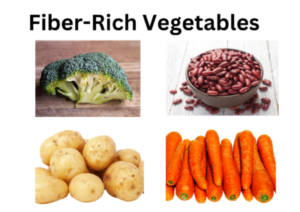
Fiber helps promote bowel regularity and prevents constipation. For indigestion, you should include more fiber in your diet. Foods with fiber can help you feel better and get your digestive system work more smoothly. All the Leafy green vegetables contain a specific type of sugar that promotes healthy gut bacteria growth. Eating a lot of fiber and leafy greens relieves constipation and ease digestion. Some of other high fiber vegetables are Broccoli, Beans, Potatoes and carrots, eggplant and Bitter gourd.
2. Eating Fruits high in fiber:-
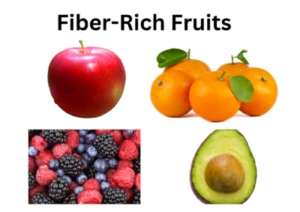
A diet high in fiber reduces water absorption in the intestines, promotes a smoother, faster movement of food, and also makes bowel movements more regular.
Fiber-rich fruits are Apples, Bananas, Berries, Pineapple, Avocodos and Oranges.
3. Water-rich foods:-
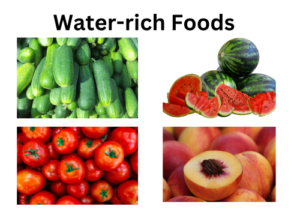
Fruits and vegetables that are high in water content can help keep the digestive system hydrated and functioning properly. Cucumbers and Watermelon leads the list. Cucumbers are made up of around 96% water that’s the highest water content of any food. So Eat cucumber regularly to ease digestion. Other water-rich fruits are:- Strawberries(90% water), Star fruits(90% water), Peaches(90% water), Celery(95% water), Tomatoes(93% water) and Apples(90% water)
4. Low-fat foods:-
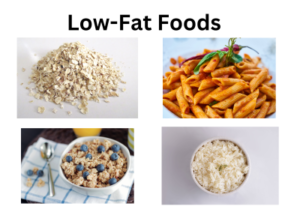
Fat is hard for the body to break down, so eating too much can cause digestive distress. Excess fat can cause the colon to overproduce liquid that leads to loose stools. High-fat foods can be difficult to digest, so choosing low-fat options can help ease digestion.
Not only Constipation, Low-fat diets, in which calories from fat sources are cut dramatically, are also considered the best to reduce body fat and lower the risk of heart disease and even cancer.
Examples include Corn flakes, Oats, Pasta and plant-based sources of protein such as legumes.
5. Eating Probiotic foods:-
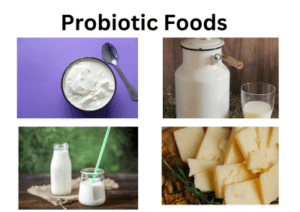
Probiotics are beneficial bacteria that help maintain a healthy balance of microorganisms in the gut. By optimizing gut health and improving digestion, healthy bacteria also break down lactose sugar and facilitate digestion. There are many probiotic foods that can help with digestion and improve our gut health. Such as Yogurt, kefir, Raw milk, and Cheese.
Some tips to Ease digestion:-
Eating nutritious foods is one of the most important steps you can take to improve your overall health and well-being. But incorporating more nutritious foods into your daily diet can seem daunting. Fortunately, there are many simple strategies that you can use to make sure you’re getting the essential nutrients your body needs.
1.Eating a Well-Balanced Diet:-

Proper meal planning is essential for optimal digestion and overall health. Meal planning can help you make sure that you are eating the right foods in the right amounts, which can help your digestive system work more efficiently. When you plan your meals, it’s important to include meals that help digest food faster and provide the essential nutrients needed for good digestion. With careful meal planning, you can ensure that your body is getting all the nutrients it needs to break down food properly and keep your digestive system running smoothly. Eating dinner before 7 pm eases digestion.
2. Include Herbs
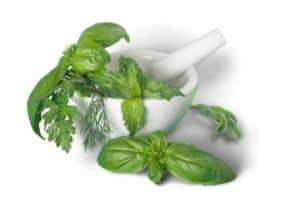
Herbs can give your meals a delicious flavor and add a variety of health benefits. Spices have been used for centuries to enhance the flavors of food, but they also have many other benefits that are often overlooked. From helping to reduce inflammation to providing antioxidants, the inclusion of herbs and spices in your diet can be incredibly beneficial. In this article, we’ll explore some of the top benefits associated with adding herbs and spices to your meals.
3. Exercise / Yoga for 30 minutes a day:-

Exercise increases blood flow to the muscles of the digestive system, which massage the food along the digestive tract – a process known as peristalsis – allowing them to function more quickly and effectively. Doing vajra san ( a yoga pose) for 5-10 minutes a day improves blood flow thus improving bowel movements and relieving constipation
Other foods that should be involved
- Lemon Water:- Having a cup of warm lemon water on an empty stomach in the morning can relieve constipation and reduces heartburn.
- Peppermint tea :- It is often referred to as a “stomach healer”. It helps to give relief to many digestive ailments including stomach aches, gas, and heartburn.
- Dates:- Eating 3 dates a day for 2 weeks will improve your digestion, boosts your energy level, and benefits bone health.
- Oats:- Oats are gut-friendly food and rich in fiber that helps in easy bowel movement every day.
- Ginger:- Ginger is very effective for the digestion of food. Additionally, it also relieves nausea and vomiting.
Takeaway
Eating for digestive health means making conscious choices about the food you eat to support your body’s digestion process. By eating the right foods, you can help your body break down and absorb nutrients more effectively, reduce inflammation in the gut, and improve overall digestive health.
I hope you liked this article and got some idea of where you can start. Your comments will be much appreciated.
If you find the information in this post useful, please share it with your friends and colleagues on Facebook, Instagram and Twitter.
